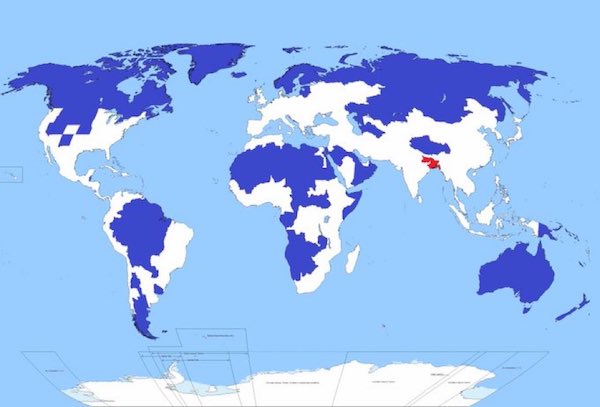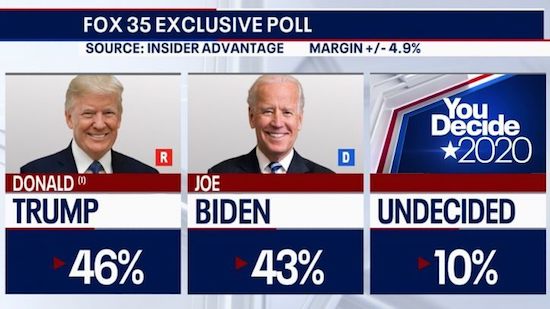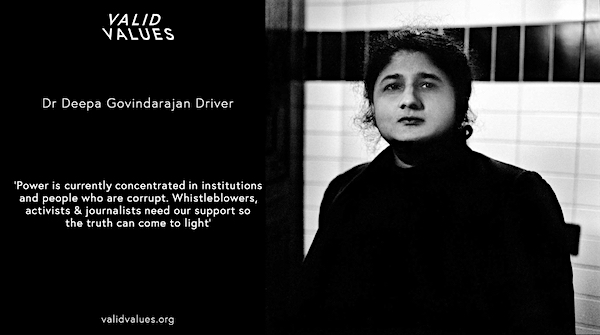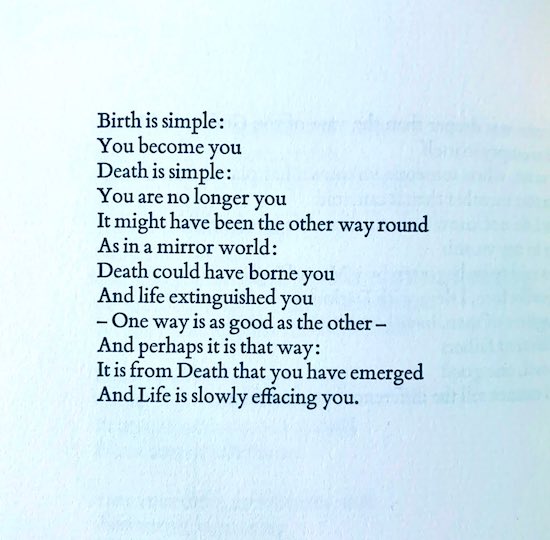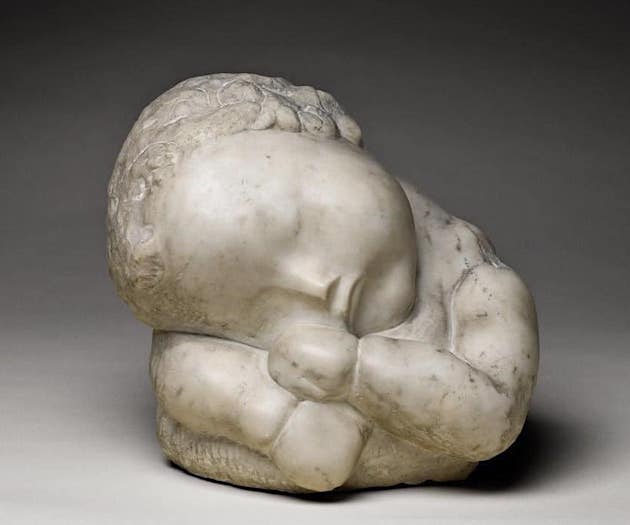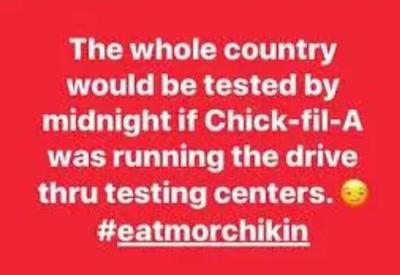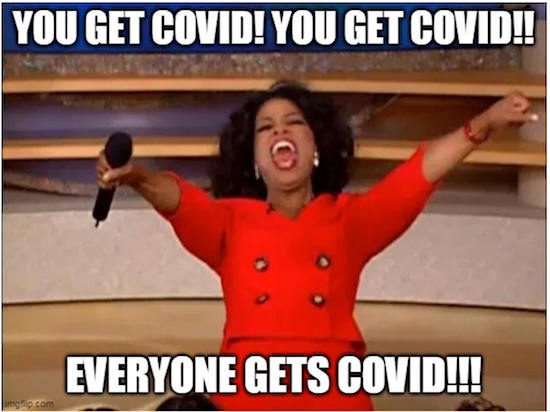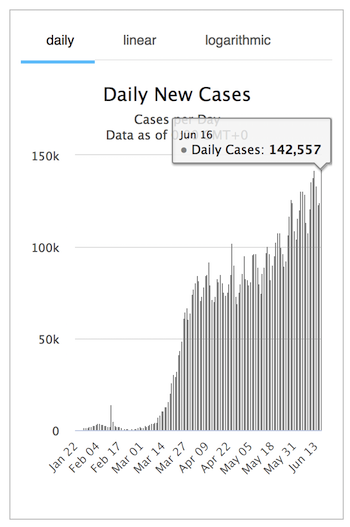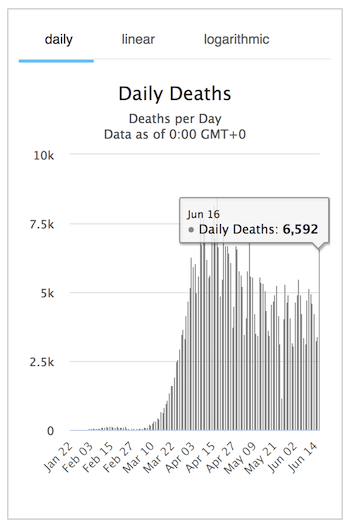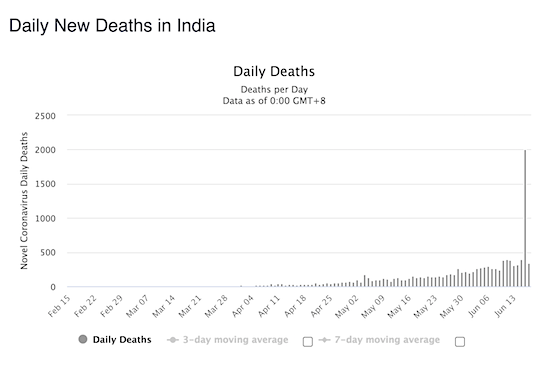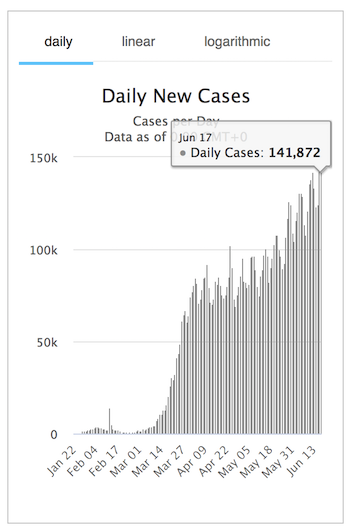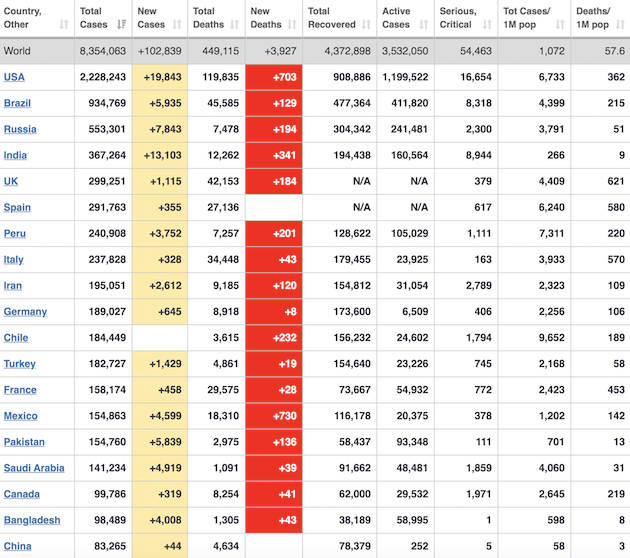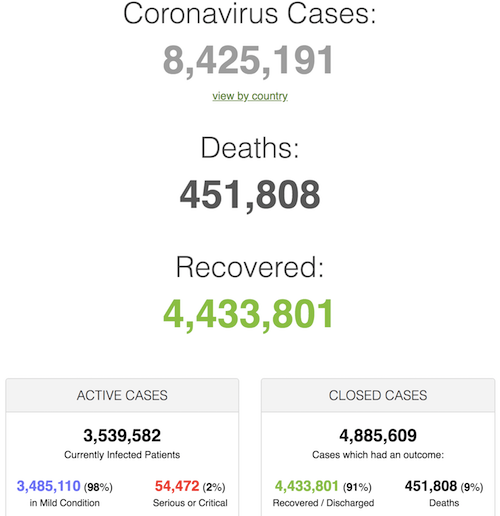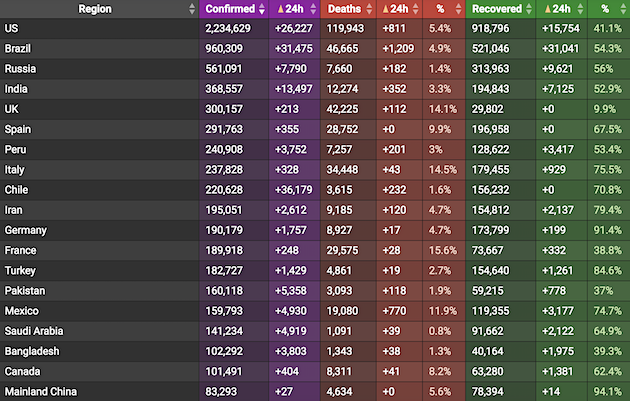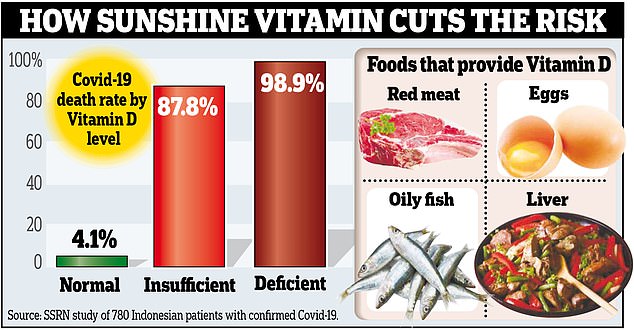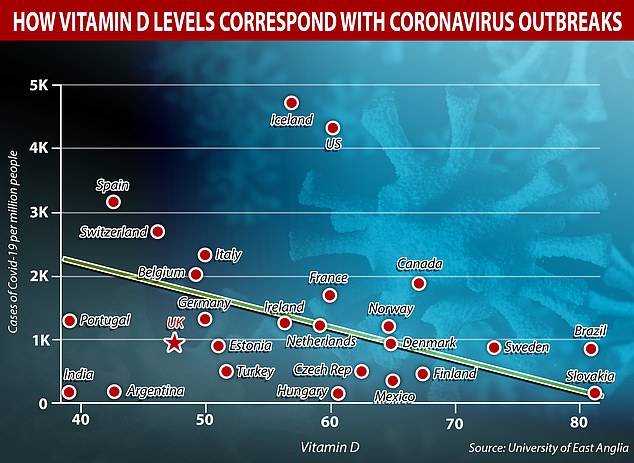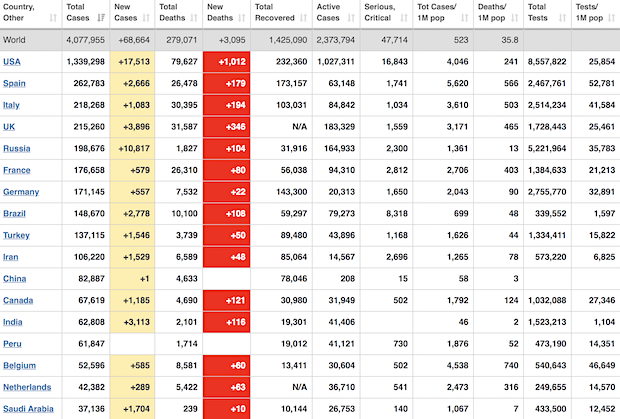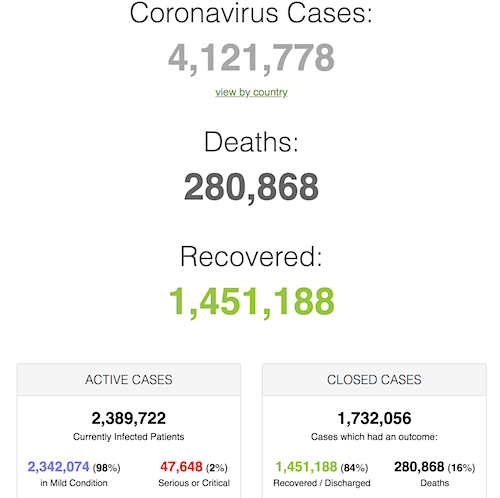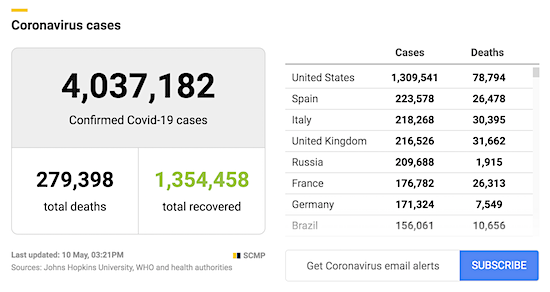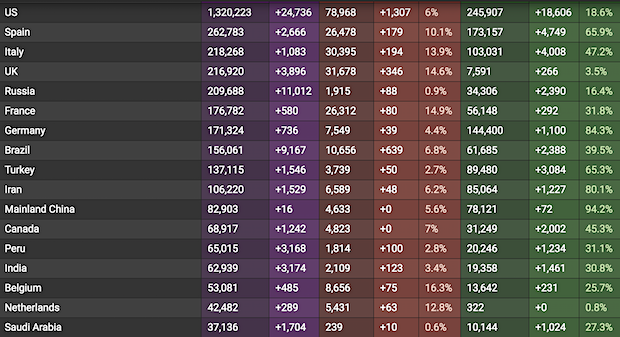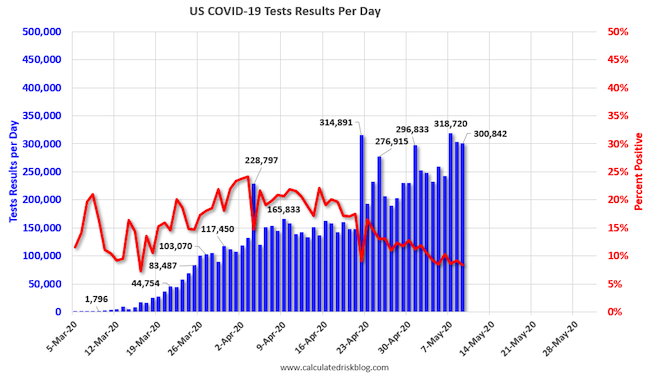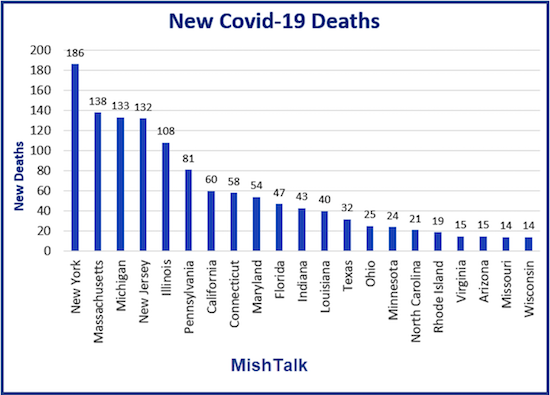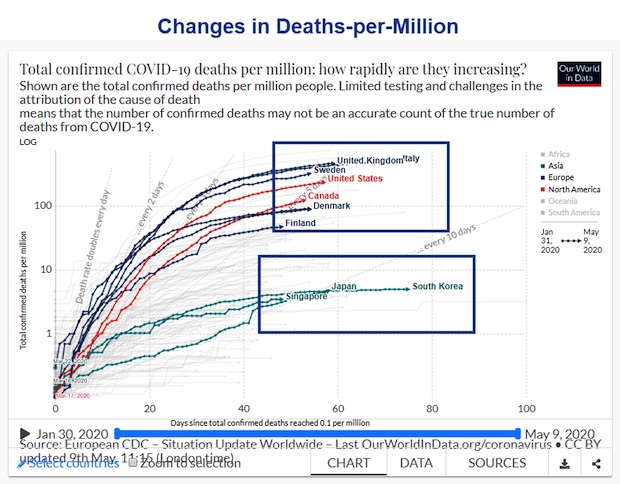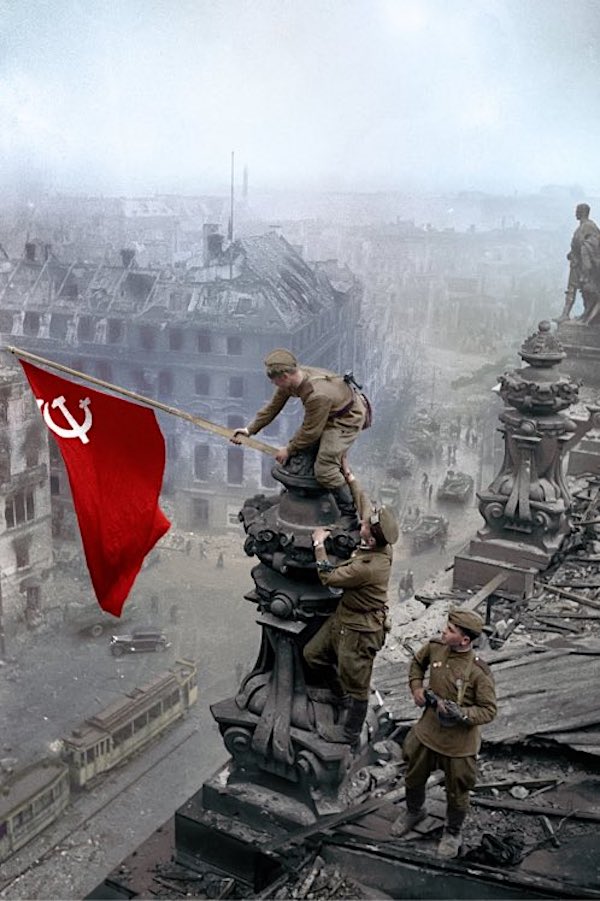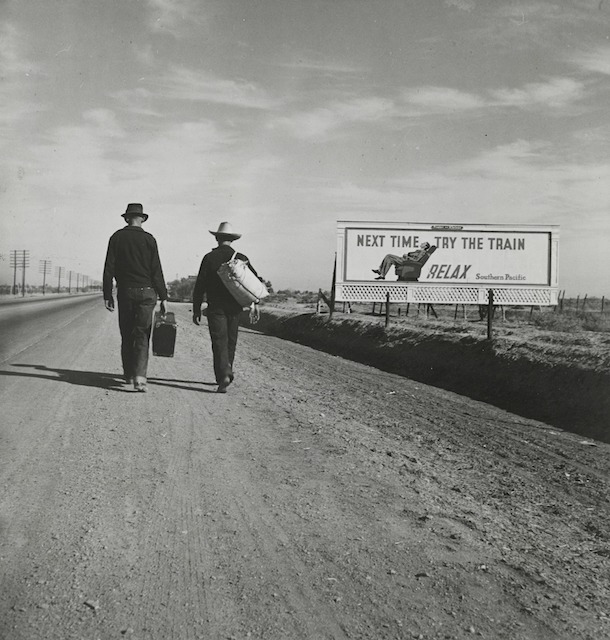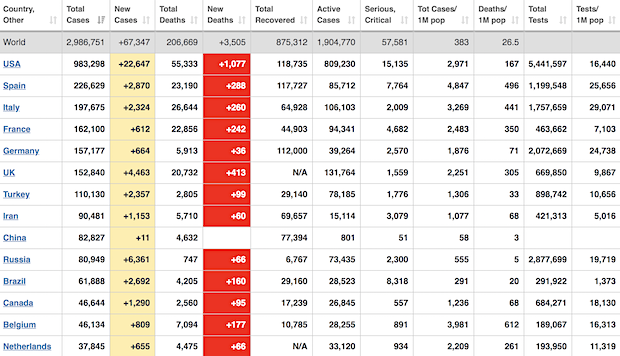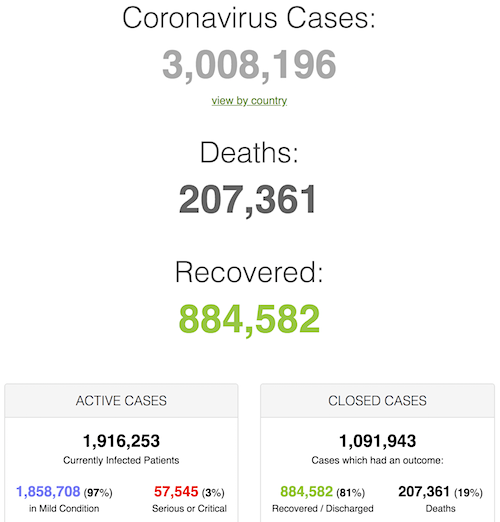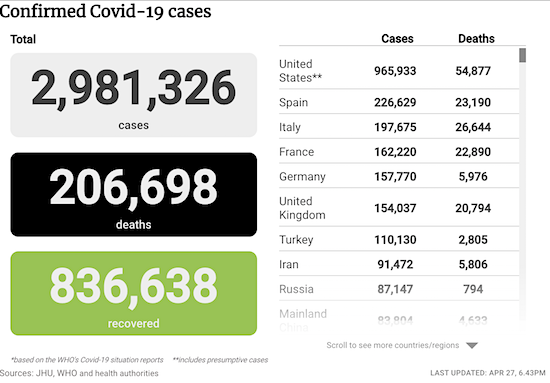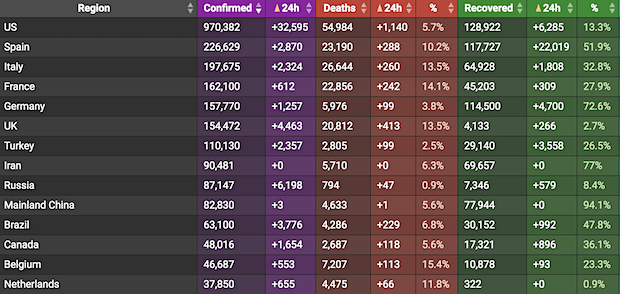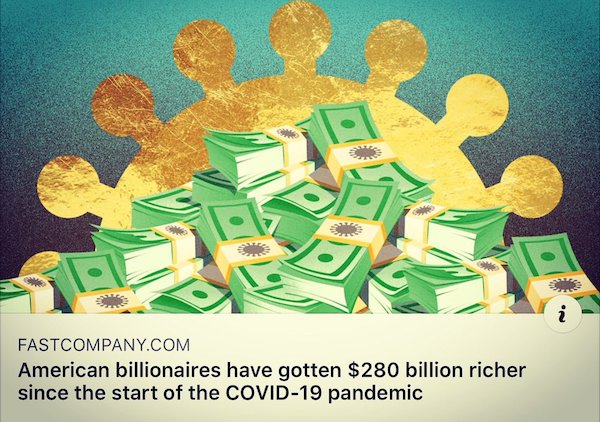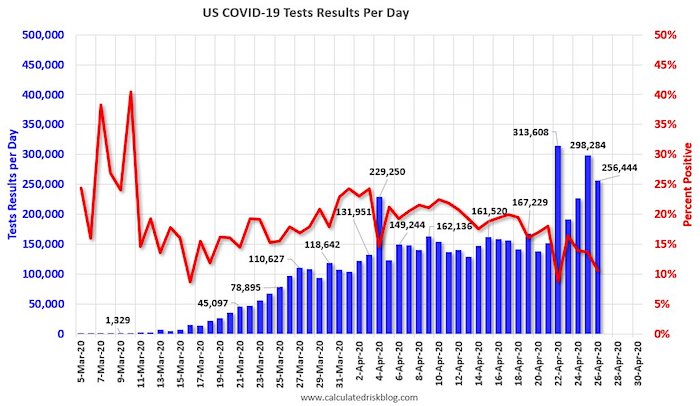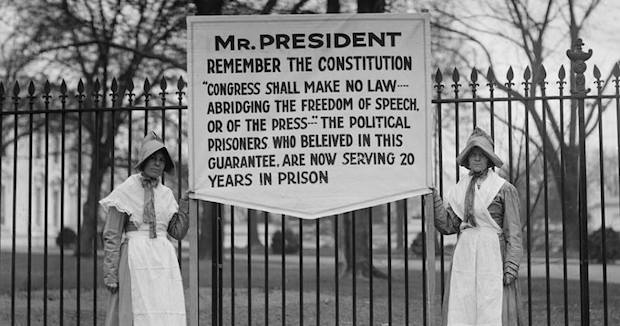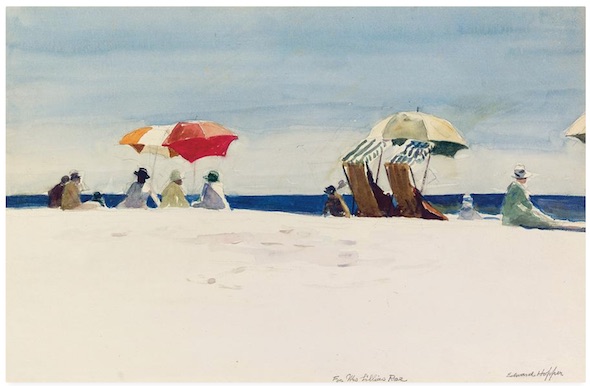
Edward Hopper Gloucester Beach, Bass Rocks 1924

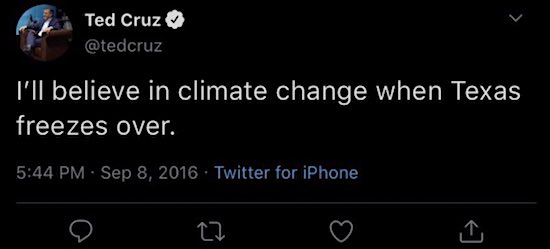

Mike Ryan
Here is Dr. Mike Ryan speaking at a @trocaire event yesterday about the catastrophe we're walking into.
I genuinely think this is the most important clip you'll ever see. pic.twitter.com/eKxBWEu7SM
— Eoghan Rice (@rice_e) February 18, 2021

Saw something in a Dutch paper. Can’t find an English version, and it has no sources. So a Google translate.
This is the first time I see a claim that the Pfizer vaccine prevents the virus from spreading, something the company itself, until recently, said it had no proof for.
What I did find in an AFP article is this, which sort of seems to deny the claim: “Gili Regev-Yochay, co-author of the study [..] said that despite the vaccine being “amazingly effective”, scientists are still studying whether fully vaccinated people can transmit the virus to others. “That is the big, big, question. We are working on it. This is not on this paper and I hope we will have some good news soon..”
The Dutch bit: “People vaccinated with the Pfizer/BioNTech vaccine are much less likely to transmit the coronavirus. That means the vaccines may not only prevent people from getting sick, but also make them much less likely to infect others, two Israeli studies show. The virus would be 89.4 percent less transmissible in vaccinated people without symptoms. In patients who do have symptoms, that percentage is even higher, at 93.7.
This is stated in a data analysis by Pfizer and the Israeli Ministry of Health.” A separate study also yielded good news. Researchers from the Sheba Medical Center concluded that 7,214 vaccinated hospital workers were much less likely to transmit the virus after 15 to 28 days. This is an 85 percent reduction in infected people with symptoms.
• Infection Down 75% After First Pfizer Shot (JPost)
Data released by Sheba Medical Center, Tel Hashomer on Friday showed that coronavirus infections were reduced by 75% after the first dose of the Pfizer coronavirus vaccine. The data, published in the peer-reviewed Lancet medical journal, centered on a study of around 9,000 Sheba healthcare workers, around 7,000 of which received their first dose in January. Sheba’s team found a 75% decrease in all infections and an 85% reduction in symptomatic infections between 15-28 days after vaccination. According to Prof. Gili Regev-Yochay, director of the hospital’s Infectious Disease Epidemiology Unit, only 170 people became infected during the two week period. Of those who contracted the virus, 99 showed symptoms. Eighty-nine of the sick were unvaccinated.
“In real life, the data looks at least as good as in the clinical trials,” Regev-Yochay said. “The first dose is even more effective than we thought.” She said the hospital is now completing research on the impact of the second dose, which she said researchers still believe is essential. However, she noted that the research supports the British government’s decision to spread out the time between the first and second shots of the vaccine in order to inoculate more people. “This is the first study assessing effectiveness of a single vaccine dose in real life conditions and shows early effectiveness, even before the second dose was administered,” said Prof. Eyal Leshem, director of Sheba’s Travel & Tropical Medicine department.
Regev-Yochay noted that there was at least one limitation on the data – that hospital workers tend to be under the age of 65 and healthier than the rest of the population, so it is possible that less people got sick or showed symptoms for that reason.

“Contingency planning for an open economy by April can deliver hope to those in despair and to those who have made large personal sacrifices.”
• We’ll Have Herd Immunity by April (Makary)
Johns Hopkins surgeon, Dr. Marty Makary, penned an Op-ed in the WSJ this morning saying that we will have herd immunity by April. “Experts should level with the public about the good news…” exclaims Makary (who is likely on the verge of getting canceled), as he cites the “miracle” 77% drop in cases over the past 6 weeks and that testing likely only captured about 10% – 25% of infections; he extrapolates that to saying 55% of Americans have natural immunity (and add to that the 15% of Americans that have been vaccinated). Additionally, he cites Scott Gottlieb, former FDA commissioner, who believes that 250mm doses of the vaccine will have be delivered to 150mm people by the end of March.
“There is reason to think the country is racing toward an extremely low level of infection. As more people have been infected, most of whom have mild or no symptoms, there are fewer Americans left to be infected. At the current trajectory, I expect Covid will be mostly gone by April, allowing Americans to resume normal life.”[..] “…the consistent and rapid decline in daily cases since Jan. 8 can be explained only by natural immunity. Behavior didn’t suddenly improve over the holidays; Americans traveled more over Christmas than they had since March. Vaccines also don’t explain the steep decline in January. Vaccination rates were low and they take weeks to kick in.”
[..] “Some medical experts privately agreed with my prediction that there may be very little Covid-19 by April but suggested that I not to talk publicly about herd immunity because people might become complacent and fail to take precautions or might decline the vaccine. But scientists shouldn’t try to manipulate the public by hiding the truth. As we encourage everyone to get a vaccine, we also need to reopen schools and society to limit the damage of closures and prolonged isolation. Contingency planning for an open economy by April can deliver hope to those in despair and to those who have made large personal sacrifices.”

More on Dr. Makary.
• Democrats Don’t Believe In Returning To ‘Normal‘ (WE)
Johns Hopkins University professor Dr. Marty Makary has an op-ed in the Wall Street Journal this week, asserting with confidence that the U.S. population will have achieved herd immunity against the coronavirus by April “allowing Americans to resume normal life.” That’s a nice thought, but not so fast, Makary. You’re not under the impression that even when we’re at an astonishingly low rate of infection that life will, on its own will, default to what it was pre-2020, are you? Don’t be so naive. The people calling the shots have made no such promises. They have, in fact, done the opposite. When is the last time anyone has heard the sainted Dr. Anthony Fauci or President Biden or anyone at all in the Democratic Party say anything about resuming “normal life.”? I’ll wait.
Just last month, Fauci said that even with as much as 85% of the population vaccinated by the end of the summer, we could still only expect a “degree of normality.” He said that, of course, in a tone that suggested we should be grateful, but it’s what he said. Biden, just this week, made clear that “normal” isn’t part of his vocabulary. During a town hall-style event, he said that the Christmas season might bring “a very different circumstance, God willing, than we are today.” Once we’re all vaccinated, aren’t you looking forward to our “very different circumstance”? Flat-lining new cases, hospitalizations, and deaths from COVID-19 is the immediate goal for everyone, but everyone needs to understand that Democrats have some other things in mind for the pandemic as well.
In Washington, D.C., where I live, we’ve been averaging something like three deaths per day between November and now. The typical person who succumbs to the virus is usually in his mid-70s to mid-80s. New cases are down close to 40% over the last two weeks. And for that, we remain in severe lockdown. Indoor capacity at restaurants, the owners of which have started constructing permanent outdoor seating structures, is limited to 25%. All of our museums are indefinitely closed. There are no clubs, movie theaters, or concert venues in operation. Anyone who believes it’s all going to come roaring back in April is kidding themselves. This is how Democrats believe we should live. They believe it’s better for the planet, but don’t worry, trust them to send you a monthly check to tide you over.
Herd immunity won’t get us back to normal. It will be people who decide they’ll no longer tolerate lockdowns.

“it carries a mutation making it resistant to some antibodies..”
• Two Variants Have Merged Into Heavily Mutated Coronavirus (New Scientist)
Two variants of the SARS-CoV-2 coronavirus that causes covid-19 have combined their genomes to form a heavily mutated hybrid version of the virus. The “recombination” event was discovered in a virus sample in California, provoking warnings that we may be poised to enter a new phase of the pandemic. The hybrid virus is the result of recombination of the highly transmissible B.1.1.7 variant discovered in the UK and the B.1.429 variant that originated in California and which may be responsible for a recent wave of cases in Los Angeles because it carries a mutation making it resistant to some antibodies.
The recombinant was discovered by Bette Korber at the Los Alamos National Laboratory in New Mexico, who told a meeting organised by the New York Academy of Sciences on 2 February that she had seen “pretty clear” evidence of it in her database of US viral genomes. If confirmed, the recombinant would be the first to be detected in this pandemic. In December and January, two research groups independently reported that they hadn’t seen any evidence of recombination, even though it has long been expected as it is common in coronaviruses. Unlike regular mutation, where changes accumulate one at a time, which is how variants such as B.1.1.7 arose, recombination can bring together multiple mutations in one go.
Most of the time, these don’t confer any advantage to the virus, but occasionally they do. Recombination can be of major evolutionary importance, according to François Balloux at University College London. It is considered by many to be how SARS-CoV-2 originated. Recombination could lead to the emergence of new and even more dangerous variants, although it isn’t yet clear how much of a threat this first recombination event might pose. Korber has only seen a single recombinant genome among thousands of sequences and it isn’t clear whether the virus is being transmitted from person to person or is just a one-off.

Baby steps, but something.
• Ivermectin Reduces Length Of COVID-19 Infection (JPost)
An Israeli tropical-disease expert says he has new proof that a drug used to fight parasites in third-world countries could help reduce the length of infection for people who contract coronavirus. Prof. Eli Schwartz, founder of the Center for Travel Medicine and Tropical Disease at Sheba Medical Center in Tel Hashomer, last week completed a clinical trial of the US Food and Drug Administration-approved drug ivermectin, a broad-spectrum antiparasitic agent that has also been shown to fight viruses. The double-blind, placebo-controlled study included 100 people with mild to moderate cases of the disease who were not hospitalized for the virus. It tested whether ivermectin could shorten the viral shedding period, allowing them to test negative for coronavirus and leave isolation in only a few days.
According to his still unpublished data, Schwartz said the drug was shown to help “cure” people of the virus within just six days. Moreover, the chances of testing negative for coronavirus were three times higher for the group who received ivermectin than the placebo, he told The Jerusalem Post. “From a public-health point of view, the majority of patients with corona are mild cases, and 90% of these people are isolated outside of the hospital,” Schwartz said. “If you have any kind of drug that can shorten the duration of the infectiousness of these patients, that would be dramatic, as then they will not infect others.” Moreover, instead of isolating for a minimum of 10 days and maybe more, this period could be shortened, benefiting the economy. Finally, although Schwartz’s study did not focus on this, he said the results indicate that it is likely if the drug were given at the beginning of one’s illness, it could prevent deterioration and hospitalization.

Full study via the link.
• German Study: Laboratory Accident Most Likely Cause of COVID Pandemic (SPR)
For more than a year, the coronavirus has been causing a worldwide crisis. In a study, nanoscientist Prof. Dr. Roland Wiesendanger has now shed light on the origin of the virus. He concludes that both the number and quality of the circumstantial evidence point to a laboratory accident at the virological institute in the city of Wuhan as the cause of the current pandemic. The study was conducted between January 2020 and December 2020. It is based on an interdisciplinary scientific approach and extensive research using a wide variety of information sources. These include scientific literature, articles in print and online media, and personal communication with international colleagues. It does not provide strictly scientific evidence, but it does provide ample and serious circumstantial evidence:
• Unlike previous coronavirus-related epidemics such as SARS and MERS, to date, well over a year after the outbreak of the current pandemic, no intermediate host animal has been identified that could have facilitated the transmission of SARS-CoV-2 pathogens from bats to humans. Therefore, the zoonotic theory as a possible explanation for the pandemic has no sound scientific basis.
• The SARS-CoV-2 viruses are surprisingly good at coupling to human cell receptors and penetrating human cells. This is made possible by special cell receptor binding domains combined with a special (furin) cleavage site of the coronavirus spike protein. Both properties together were previously unknown in coronaviruses and indicate a non-natural origin of the SARS-CoV-2 pathogen.
• Bats were not offered at the suspected fish market in the center of Wuhan city. However, the Wuhan City Virological Institute has one of the world’s largest collections of bat pathogens, which originated from distant caves in southern Chinese provinces. It is extremely unlikely that bats from this distance of nearly 2,000 km would have naturally made their way to Wuhan, only to cause a global pandemic in close proximity to this virological institute.
• A research group at the Wuhan City Virological Institute has been genetically manipulating coronaviruses for many years with the goal of making them more contagious, dangerous and deadly to humans. This has been documented in the scientific literature by numerous publications.
• Significant safety deficiencies existed at the Wuhan City Virological Institute even before the outbreak of the coronavirus pandemic, which have been documented.
• There are numerous direct references to a laboratory origin of the SARS-CoV-2 pathogen. For example, a young female scientist at the virology institute in Wuhan is believed to have been the first to become infected. There are also numerous indications that as early as October 2019, the SARS-CoV-2 pathogen spread from the virological institute to the city of Wuhan and beyond. Furthermore, there are indications that the virological institute was investigated by the Chinese authorities in the first half of October 2019.

Late to the game?
• Johnson & Johnson Submits Its Single-Shot Covid Vaccine To WHO (RT)
Pharma giant Johnson & Johnson has submitted data on its coronavirus vaccine to the World Health Organization (WHO) as it seeks the agency’s greenlight for emergency use. Unlike other shots, this one comes in a single dose. The emergency-use approval is a prerequisite for the vaccine joining the WHO-led COVAX watchdog program, J&J said in a statement on Friday, revealing it had submitted its paperwork to the UN health body. Unlike vaccine competitors already in the Covid-fighting market, the J&J offering comes in a single-dose form, which would make its distribution considerably easier. Moreover, it can be stored under standard refrigerator temperatures, making it an attractive option for countries with less-developed infrastructure.
While Russia’s Sputnik V, British-Swedish AstraZeneca and China’s CoronaVac vaccines can be stored in regular fridges as well, both of the US jabs by Moderna and Pfizer require extremely low temperatures to prevent spoilage. Pfizer said on Friday, however, that it had sufficient data to show its jab can actually be safely stored in a refrigerator and not the extreme cold currently advised. Johnson and Johnson published data on the late-stage trials of its vaccine last month, with the solution showing a rather modest efficacy of 66 percent. The vaccine was tested across several countries and showed mixed results ranging from 72 percent in the US to merely 57 percent in South Africa. [..] Apart from seeking the WHO’s approval, the J&J vaccine is also expected to enter the US market shortly. The solution is currently under review by the US Food and Drug Administration, with its experts expected to discuss its emergency use authorization next week.

I see Nobel Prize AND Oscar material:
“By the time Biden took office, the pandemic was raging out of control. ‘Oh my goodness, it was,’ Fauci says. ‘When President Biden walked into the White House we were having 300,000 to 400,000 cases per day, 4,000 deaths per day, and our hospitals were on the brink of being overrun.’”
On Jan 18, the US had 150,695 new cases.
On Jan 19, the US had 176,153 new cases.
On Jan 20, the US had 191.222 new cases.
• Fauci: When I Publicly Disagreed With Trump He Let Terrible Things Happen (T.)
He appears surprisingly relaxed given his immense responsibilities at this time of crisis, but then it takes a lot to faze Dr Fauci. The evergreen director of Washington’s National Institute of Allergy and Infectious Diseases (NIAID) has been a medical adviser to seven consecutive US presidents, starting with Ronald Reagan, steering them and his country through outbreaks of Ebola, Sars, Zika, avian flu, swine flu and the threat of biological weapons after 9/11. He was one of the first scientists to spot the lethal new syndrome that was Aids in the early 1980s. He was initially reviled by a gay community outraged at the Reagan administration’s apparent indifference to its decimation, then hailed as a hero after championing its cause.
Most recently, during almost all of 2020, he watched in horror as President Trump actively undermined his own government’s battle against the Covid-19 pandemic by holding mass rallies, mocking mask wearers, promoting quack remedies and encouraging his supporters to breach lockdowns. Fauci does not consider this characterisation of Trump’s conduct unfair. ‘No, no, no,’ he says. ‘Unfortunately it’s the truth.’ Donald Trump was initially sceptical of the threat from Covid-19, but Fauci and his fellow scientists did manage to persuade him to back state-by-state lockdowns, and approve social-distancing measures. He also restricted Chinese visitors to the country. By the spring, however, Fauci’s relations with the president had soured as Trump began listening to outsiders with no scientific knowledge and fretting about the damage to the economy and – by extension – his re-election hopes.
Fauci’s challenge was to correct the president’s dangerous falsehoods as diplomatically as possible, often while sharing the stage with him at televised White House briefings, but he says that ‘when it became clear that in order to maintain my integrity and to get the right message [across] I had to publicly disagree with him, he did things – or allowed things to happen – that were terrible. ‘Like he allowed Peter Navarro [Trump’s trade adviser] to write an editorial in USA Today saying that almost everything I’ve ever said was wrong. He allowed the communications department of the White House to send out a list to all of the media, all of the networks, all of the cables, all of the print press, about all of the mistakes I’ve made, which was absolute nonsense because there were no mistakes.’
Trump also began to denigrate Fauci in tweets and press conferences, setting him up as a target for the extreme Right’s hatred. ‘Which I became, to the point that to this day I have to have armed federal agents guarding me all the time,’ Fauci says. And he was not the only target. To his dismay, his wife and three adult daughters were also harassed and threatened. Liberated under President Biden, Fauci can now speak frankly in a way he couldn’t last year. He tells me that in the final two months of his presidency Trump almost completely abandoned his duty to protect the nation from the pandemic. ‘We [the scientists] were trying, but we were acting almost alone, in the sense of without any direction.’

“..500 million doses would have cost the EU €3 billion more than the annual GDP of Iceland.”
• Pfizer-BioNTech Tried To Gouge The EU With $65 Vaccine Doses (RT)
Drugmakers Pfizer and BioNTech wanted to charge the EU Commission €54.08 per dose of their Coronavirus vaccine, according to German media reports. The jab would have cost more than 20 times that of a rival shot from AstraZeneca. The prospective price tag was revealed on Thursday by German broadcasters NDR and WDR, and the Suddeutsche Zeitung newspaper. The paper claims that Pfizer and BioNTech submitted a bid to the EU offering 500 million doses at €54.08 ($65.58) per dose, for a total cost of €27 billion ($32.74 billion). At €54.08, the BioNTech vaccine would have cost more than 20 times as much as the rival vaccine developed by AstraZeneca and Oxford University, and 500 million doses would have cost the EU €3 billion more than the annual GDP of Iceland.
In comparison, Russia’s ‘Sputnik V’ vaccine was expected to be priced at no more than $10 (€8.26), according to its backers. “I see it as a pursuit of profit that is in no way justified in the current situation of the pandemic,” Wolf Dieter Ludwig, drug chairman of the German Medical Association, told the newspaper. Pfizer-BioNTech has made no profit on the sale of vaccines, according to the Suddeutsche Zeitung, and during negotiations last year reportedly told EU officials that the €54.08 price tag already included “the highest percentage discount” offered to any developed country. The final cost per dose of the vaccine is still unknown, though a document leaked by Belgian MP Eva De Bleeker in December suggested that Pfizer-BioNTech had been bargained down to €12 ($14.55).
Reuters later stated that it had reviewed documents showing the price at €15.50 ($18.79) per dose, “slightly lower than the $19.50 per shot the United States agreed to pay for a first shipment of 100 million doses of the same vaccine.”

“..$1.5 billion is chump change for the charismatic Elon Musk, whose share of the American GDP can be seen from outer space, like the Great Wall of China.”
• Covid or No Covid (Kunstler)
Covid-19 cases are going down fast across the country. If it actually goes away, imagine the giant hole left in the national narrative. No more arguments over lockdowns, kids could go back to school to learn about the scourge of whiteness, and Americans could see each other’s faces again. The “progressives” in power would have to hunt up some new reasons to cancel the bill of rights. That shouldn’t be too difficult for a party adept at making shit up. Right wing extremism would be my bet, even if Antifa and BLM go back to partying in the streets like it’s 2020 when the weather warms up. What won’t go away is the nation’s fantastic economic mess.
In just a few months since Thanksgiving, the financial system has gone through an epic shift, barely noticed by citizens preoccupied with unpaid bills, skipped rents, and empty refrigerators: the stock markets are now based on Bitcoin, which is to say on less than nothing. A whole new dynamic has emerged with publicly-held companies buying the stuff hand-over-fist. An outfit like Tesla, rumored to manufacture electric cars, invested $1.5 billion in the crypto-currency, which has shot up to over $50,000-a-coin in recent weeks. The move was so splendidly shrewd that Tesla’s stock price also shot up, though they don’t make a profit on those cool cars. Of course, $1.5 billion is chump change for the charismatic Elon Musk, whose share of the American GDP can be seen from outer space, like the Great Wall of China.
Other companies are buying Bitcoin on margin, taking advantage of super-low interest rates to make a fast killing. What a great idea! Even better than borrowing to buy back your own company’s stock to jack-up the share value. Don’t be surprised if half of the S & P jumps into the Bitcoin frenzy, bidding it up to six figures. Won’t that do wonders for US productivity and working-class wages? None of that will escape the attention of a “progressive” Congress, which will see a great opportunity to try to compensate for its fiscal profligacy by passing new taxes on “excess wealth” or “windfall profits.” Then, watch the rush-to-the-exits by shareholders in those companies that loaded up on Bitcoin, aggravated by the margin calls on the dough they borrowed to buy the stuff… as well as Bitcoin itself plummeting back to its actual true value: around zero.

Clincher: the vote is scheduled for “as early as” June.
• Swiss To Vote In Referendum On Government’s Covid Restrictions (FT)
Swiss campaigners have triggered a referendum to strip the government of new legal powers to impose lockdowns and curtail public life as the country battles the pandemic. Campaign group Friends of the Constitution on Wednesday handed in a petition of 86,000 signatures collected over the past three months — well in excess of the 50,000 required — to formally initiate a nationwide vote to repeal the 2020 Covid-19 Act under Switzerland’s highly devolved democratic system. The outcome will be legally binding, with a vote scheduled for as early as June. While the pandemic has exposed social and political fractures across Europe over the rights of citizens, in Switzerland — where individuals’ rights are often treated as culturally sacrosanct and government powers are sharply proscribed by law — the strains have become particularly evident.
“In our opinion, the [government] is taking advantage of the pandemic to introduce more control and less democracy,” Christoph Pfluger, a board member of Friends of the Constitution, told the Financial Times. He added: “The long-term problems that will arise from this kind of approach will be grave. We are a movement that says crisis management cannot be done without the will of the sovereign — the people. You cannot govern without the people.” Mr Pfluger said Switzerland would be the first and perhaps the only country to give its citizens a direct vote on coronavirus restrictions. Until late December, Bern’s governing Federal Council had been reluctant to impose restrictions during the second wave of the pandemic.
Staunch opposition from many Swiss to further curbs and dire warnings from several of the country’s most powerful and influential lobbying groups about the economic consequences of another shutdown forestalled action in the run-up to Christmas, even as case numbers rocketed. A poll conducted by Switzerland’s Sotomo Research Institute for state broadcaster SRF in November found that 55 per cent of Swiss were concerned about their individual freedoms being restricted by government measures. The same survey found that even an 11pm curfew for bars and restaurants was considered too restrictive by a third of Swiss respondents.

Just like Twitter, Facebook.
• China Steps Up Online Controls With New Rule For Bloggers (AP)
Ma Xiaolin frequently wrote about current affairs on one of China’s leading microblogging sites, where he has 2 million followers. But recently, he said in a post, the Weibo site called and asked him not to post original content on topics ranging from politics to economic and military issues. “As an international affairs researcher and a columnist, it looks like I can only go the route of entertainment, food and beverage now,” the international relations professor wrote on Jan. 31. Ma, who often posted on developments in the Mideast, is one of many popular influencers working within the constraints of China’s heavily censored web who is finding that their space to speak is shrinking even further with the latest policy changes and a clean-up campaign run by the country’s powerful censors,
Beginning next week, the Cyberspace Administration of China will require bloggers and influencers to have a government-approved credential before they can publish on a wide range of subjects. Some fear that only state media and official propaganda accounts will get permission. While permits have been needed since at least 2017 to write about topics such as political and military affairs, enforcement has not been widespread. The new rules expand that requirement to health, economics, education and judicial matters. “The regulators want to control the entire procedure of information production,” said Titus Chen, an expert in Chinese social media policy at National Sun Yat-Sen University in Taiwan.

Chilling. Scorsese.
• The Sound and the Fury of Andrew Cuomo (New Yorker)
Last week, Ron Kim, a Democratic State Assembly member from Queens, was preparing a bath for his three daughters—ages six, four, and two—when he got a call from the governor around 8 p.m. An hour earlier, the New York Post had published leaked details of a Zoom meeting between state Democratic lawmakers and Melissa DeRosa, one of Governor Andrew Cuomo’s closest aides. During the two-hour meeting, DeRosa seemed to confirm a suspicion that a number of lawmakers had had for months: the governor had intentionally withheld from them data confirming that thousands more New York nursing-home residents died from covid-19 than official numbers publicly showed. The lawmakers demanded an explanation, and DeRosa offered them one: last year, the Cuomo administration had been worried that Donald Trump and his Justice Department would use the numbers “against us.” “Basically, we froze,” DeRosa told the Democrats.
Kim, who has been a persistent critic of Cuomo’s handling of nursing homes during the pandemic, was in the meeting with DeRosa. A month earlier, he had become the chair of the Assembly’s Committee on Aging, and once the recording of the call leaked, the Post had reached out for comment. Kim told the reporters that, to him, DeRosa’s comments were as bad as they looked—“They were trying to dodge having any incriminating evidence,” he said—a quote that the governor’s office had tried to get Kim to retract. But the quote had stayed in, the story was up, and now the governor was on the phone, fuming. “I will destroy you!” Cuomo screamed, according to notes Kim wrote down after the call—which he shared with me. The governor was so loud that Kim’s wife and daughters grew upset, and Kim stepped out of the bathroom. “You haven’t seen my wrath,” Cuomo told him. “I will go out tomorrow and start telling the world how bad of an Assembly member you are, and you will be finished.”
For Kim, the nursing-home issue was personal as well as political. In April, his uncle Son Kim died, of a suspected case of covid-19, in a nursing home in Queens. He was seventy-eight, and had shaped his nephew’s life. Son Kim had become a dentist at a time when it was almost impossible for a Korean immigrant to set up a dental practice in New York City. He enlisted in the Army, in which he could practice his profession, and eventually sponsored Ron and his family’s visas to the U.S.; in 1987, when Ron was seven, his uncle, a staunch Republican, chose a new American name for him, in honor of President Ronald Reagan. Despite the personal loss, Kim told Cuomo that he’d tried to keep his disagreements about the governor’s pandemic policies on the level of policy. I bit my tongue, Kim said. “I bit my tongue!” Cuomo shot back.
Neither Kim nor his wife slept that night. “I’m trying to calm her down,” Kim told me. Cuomo kept up the pressure through the weekend. That Saturday, Cuomo’s aides and other intermediaries called Kim, trying to get him to talk to the governor. “It’s Lunar New Year—I’m with my family,” Kim told me. “I felt extremely uncomfortable.” Kim believes that Cuomo was trying to silence him. “I realized if I changed course, I’m complicit,” Kim said. “And then, politically, he owns me.” Kim hired a lawyer, to whom he directed any further communications about the issue from the governor’s office. “Ultimately, what he was trying to do was asking me to lie about what I heard,” Kim said, of Cuomo. “It’s like I witnessed a crime, and they’re asking me to say I didn’t witness a crime.”

“In the aftermath of this debacle, we will return to New Deal-style municipal socialism, or this disaster of power, water, and gas will happen again. Socialism is government, in technical matters, by engineers and others who know their stuff and not by ideologues who do not. Compared to Texas right now, it’s not such a bad prospect.”
• The Texas Freeze is a Catastrophe of the Free Market (Galbraith)
Competition would assure bare-bones, lean-and-mean efficiency, and low, low prices most of the time, reflecting the cost of fuel plus the smallest possible profit margin. The role of the state would be minimal – just to manage the common grid, through which power flows from the producer to the consumer. In times of shortage, prices might rise, but then the market would decide; those who did not wish to pay could always flip their switches off. It was a perfect textbook setup, with supply on one side, demand on the other, and a neutral manager in between. True, there were a few loose ends. One is that demand for electricity is what economists call inelastic: it doesn’t respond much to price, but it does respond to changes in the weather, and at such times, of heat or cold, the demand becomes even more inelastic.
Another detail was that in an ordinary market, there can be some play in the relationship between supply and demand. If even a fishmonger does not sell his catch, he can, at the end of the day, cut his price – or even freeze the haddock for the following day. Electricity isn’t like that. Supply has to exactly equal demand every single minute of every single day. If it doesn’t, the entire system can fail. This system, therefore, had three vulnerabilities. First, it created an incentive for cut-throat competition, to provide power in the cheapest possible way, which meant with machinery, wells, meters, pipes, and also windmills that were not insulated against extreme cold – a rarity but not unknown, even in Texas. Second, it left prices free to fluctuate. Third, it assured that when prices rose the most, that would be at exactly those moments when the demand for power was the greatest.
In 2002, under Governor Rick Perry, Texas deregulated its electricity system. After a few years, the electrical free market, managed by a non-profit called ERCOT, was fully-established. Some seventy or so providers eventually sprung up. While a few cities – including Austin – kept their public power, they were nevertheless tied to the state system. The market system could, and did, work out most of the time. Prices rose and fell, and customers who didn’t sign long-term contracts faced some risk. One provider, called Griddy, had a special model: for $9.99 a month you could get your power at whatever the wholesale price was on any given day. That was cheap! Most of the time.
The problem with “most of the time” is that people need electric power all of the time. And Texas’s leaders knew as of 2011, at least, when the state went through a short, severe freeze, that the system was radically unstable in extreme weather. But they did nothing. To do something, they would have had to regulate the system. And they didn’t want to regulate the system, because the providers, a rich source of campaign funding, didn’t want to be regulated and to have to spend on weatherization that was not needed – most of the time. In 2020, even voluntary inspections were suspended, due to Covid-19.
Enter the deep freeze of 2021. Demand went up. Supply went down. Natural gas froze up at the wells, in the pipes, and at the generating plants. Unweatherized windmills also went off-line, a small part of the story. Since Texas is disconnected from the rest of the country, no reserves could be imported, and given the cold everywhere, there would have been none available anyway. There came a point, on Sunday, February 14 or the next day, when demand so outstripped supply that the entire Texas grid came within minutes of a collapse that, we are told, would have taken months to repair.

We try to run the Automatic Earth on donations. Since ad revenue has collapsed, you are now not just a reader, but an integral part of the process that builds this site. Thank you for your support.

“I prefer the company of people who make me smile to those who make me laugh.”
– Nassim Nicholas Taleb



Support the Automatic Earth in 2021. Click at the top of the sidebars to donate with Paypal and Patreon.




